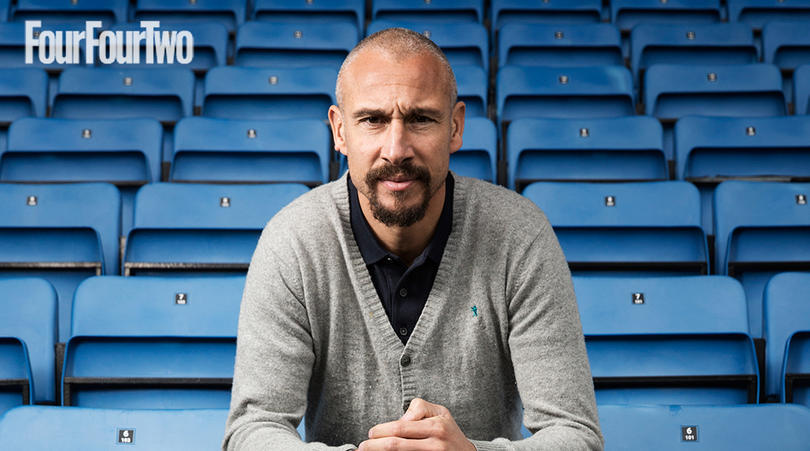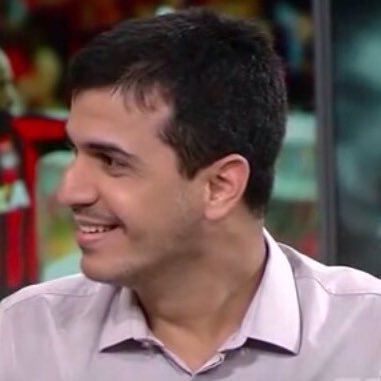The big interview: Robinho – "I had a fight with Craig Bellamy once, but then who at City didn’t?!"
Was it tough being ‘the next Pele’? Why did his move to Chelsea fall through? And did he really get the bus around Manchester? Your questions answered in March 2017...
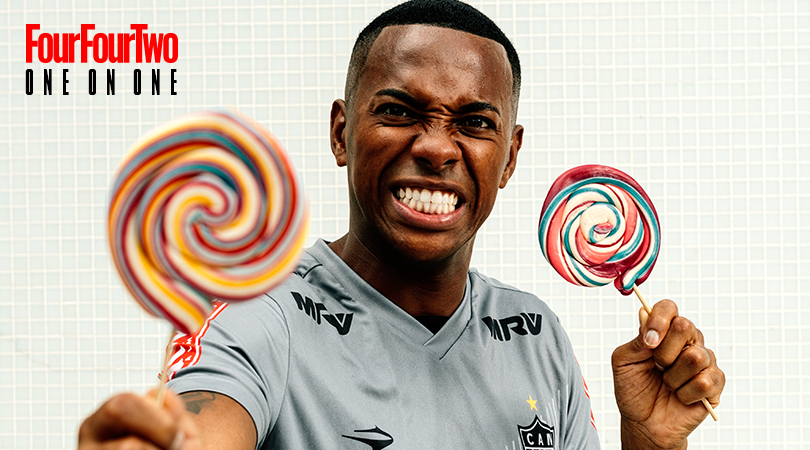
FourFourTwo arrives at the training ground of Atletico Mineiro to find Robinho happily chatting away on Facetime as pre-season preparations continue for the Brazil Serie A side. After his acrimonious exits from Real Madrid and Manchester City, there’s a perception the 33-year-old is a little surly. That couldn’t be further from the truth, and it’s not hard to see why – last season he hit 25 goals for the Roosters.
He insists, though, that’s not the main reason for his joyful demeanour. “One day without smiling is a lost day for me,” says the former Santos star. Robinho is still the same humble man that happily used public transport to get around Manchester, and that’s just as well, as FFT has a few questions to ask…
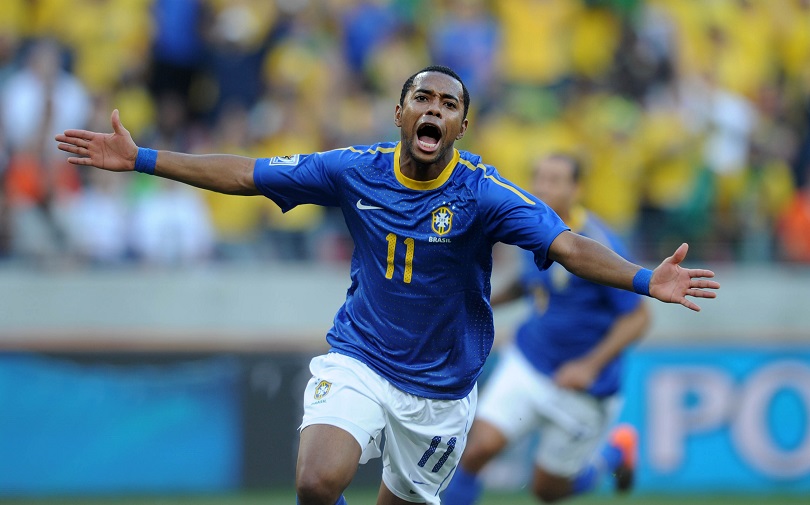
2002-05 Santos
2005-08 Real Madrid
2008-10 Manchester City
2010 Santos (loan)
2010-15 Milan
2014-15 Santos (loan)
2015 Guangzhou Evergrande
2016-17 Atletico Mineiro
2018- Sivasspor
I once watched a documentary on Falcao, the futsal player, and you turned up for a kickabout. How vital was futsal to your development?
Jamie Baker, London
I used to spend a lot of time playing; it is one of my passions. I even joked with my son and told him that if it’s possible, I would play futsal in the last year of my career. It’s how I started and, to this day, the dribbles I do all come from it.
Pele bigged you up from a very young age, even comparing you to himself – did you feel pressured by his praise?
Sandro Dias, via Facebook
In the beginning it was very difficult because Pele is incomparable – there’s no way you can compare yourself to someone who hit 1,000 goals, played in four World Cups and is rated as the greatest footballer ever. I have to thank everyone that was by my side during the early years, because I was always very well guided during my time in the academy at Santos, and then when I got into the senior team I had my coach Emerson Leao taking care of me, too.
He once told me: “You are a great player. You can look like him, but Pele is Pele and Robinho is Robinho.” Of course it was nice to be compared to him, but I always had it clear in my mind that I had nothing on Pele. There will never be another footballer quite like him.
The best features, fun and footballing quizzes, straight to your inbox every week.
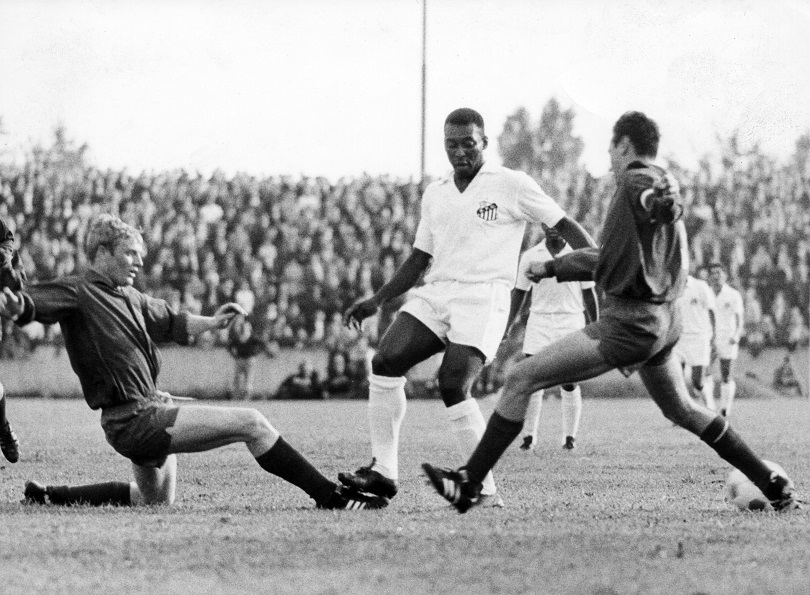
Was your signature move – the ‘pedalada’ – your own invention or did you see someone else do it first?
Jun Kaloustian, via Facebook
No, I had already seen other players doing it, such as Zinho and Denilson. I started to do it, too – not as often as them, but in almost every single game. It couldn’t have worked out better than it did in the 2002 Brazil championship final against Corinthians [which Santos won 5-2 on aggregate]. I still get called ‘Pedaladas’ because of those games. Denilson is a good friend of mine, and he always tells me that he’s the real ‘pedalada’ and I just took all the credit.
What actually happened during the ‘Shorts Dropping Crisis’ of 2004?
Victor de Souza, via Twitter
It was a disastrous prank I pulled because [the former Brazil midfielder] Diego was always pulling my shorts down, and I could never get revenge. I was waiting for my chance for a long time, and then it came on the day we were having our official photos taken for the pre-Olympic qualifying tournament in Chile. So while he was posing for the cameraman, I did to him what he had done to me so many times, and everyone in Brazil got to see.
All of the headlines the next day were about the photo. We thought it was hilarious, but then when we failed to qualify for the Olympics there was a lot of anger about it. That was a turning point for us – we knew we had to leave our childhood behind and become men; we then realised exactly what it means to wear the yellow shirt of the national team in a very important competition.
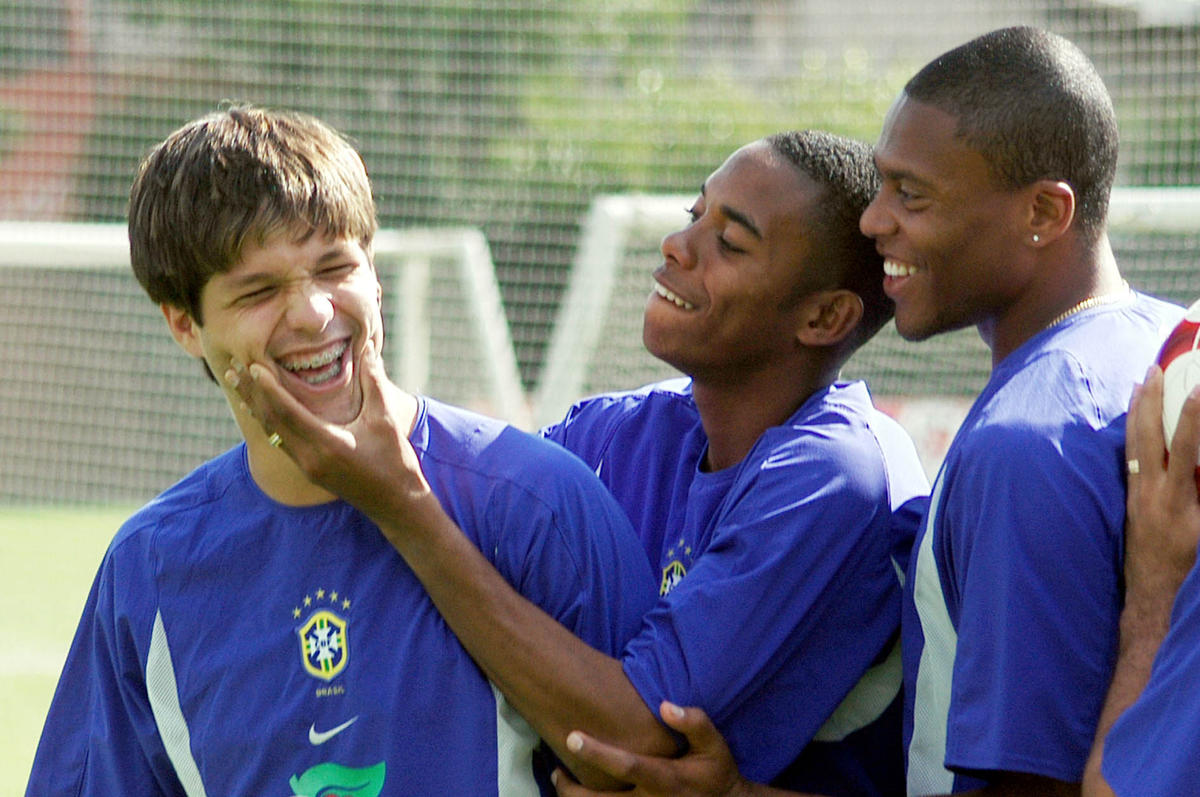
Is it true you made your Real Madrid debut 24 hours after landing in the city? It’s the best debut performance I have seen. What are your memories of that match and the reaction to your good performance that day?
Mark Venn, Plymouth
It was a very good debut, a wonderful one – I was anxious to get a chance to play alongside such fantastic players as Ronaldo, Zinedine Zidane and Raul. I couldn’t wait. I can even remember planning the game in my head while I was on the airplane. It was almost perfect. When I got the ball for the very first time, I lobbed the ball over a Cadiz player and then started to dribble away. It was a remarkable debut for me. I’d arrived in Madrid the day before, but I was a kid and determined to play.
Why Real Madrid and not Barcelona?
Javier Lopez, via Twitter
It may seem like a difficult choice, but it wasn’t. Real Madrid was the team that showed more interest in me. Both of them are great clubs that have fans all around the world, but when Madrid came in for me, I saw that they had a large Brazilian group in their squad, the coaching staff was also from Brazil, and Vanderlei Luxemburgo was the coach. When you put all this together, why would I have moved to Barcelona?

What was it like walking into the Real dressing room as a 21-year-old with the likes Zidane, Raul and Ronaldo around? That can’t have been easy...
Alan Page, via Facebook
It was a dream come true to play for a big European club. I couldn't believe it when I got inside the dressing room for the first time. I was very young and I couldn’t even find my locker. But they all treated me in the best way possible. I was their kid, they looked after me.
What is David Beckham like? Is he as great a guy as he seems?
Ryan Inns, via Twitter
Beckham was always hanging out with the Brazilians. He was part of our group. In fact, there was even a little jealousy among the Spanish players because he could speak Portuguese better than Spanish, so he used to spend most of his time with us. He’s a very humble man – I’d say the most down-to-Earth player I’ve met. He’s amazing.How well did you get on with Fabio Capello? It seemed like you had a hard time convincing him you should be playing regularly…
Roberto Gesualdi, via Twitter
I was given the chance to play by all my coaches at Real Madrid. When Capello first arrived, I was still starting games regularly, but then, for some reason, maybe because of my age, he put me on the bench. I can’t complain about it, he was the coach and that was his decision. I just couldn’t be happy with the role of second-half substitute, being forced to play out of position and mark the full-back.
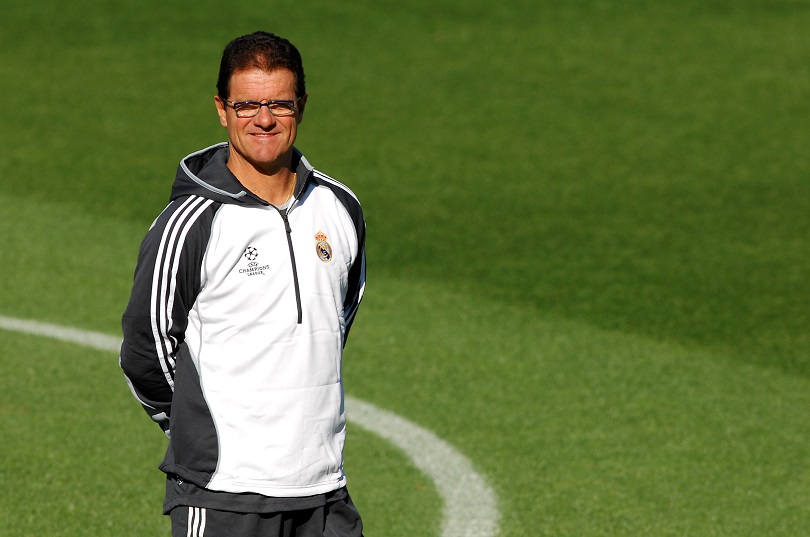
Do you regret leaving Real Madrid? Were you unhappy that they tried to offer you to Manchester United in exchange for Cristiano Ronaldo?
Tony Simon, Warrington
I don’t regret leaving Real Madrid, but I do regret falling out with them when I moved on, as Madrid was the club that opened doors for me and offered me the opportunity to conquer Europe. Perhaps the way I had to fight my way out erased the memories of some great things I did for the team; I helped them become champions and I think I played well during my spell in the team. But I was really determined to leave and I had an explosive temper, and didn’t give things as much thought as I do now.
What happened regarding the confusion about you signing for Chelsea ahead of your move to Manchester City? How close were you to moving to London instead?
Sarah Davies, via Twitter
My main goal was to move to Chelsea – Big Phil [Scolari] had said I could make the difference for him as his squad, according to him, was not creative enough. But Real Madrid had fallen out with Chelsea – they didn’t like them selling shirts with my name on before the deal had been done. I am pretty sure that this error was one of the main reasons why the transfer failed, as it was a matter of pride for Real Madrid.
And they were also reluctant to let me move to a club that was playing in the Champions League the same season – Chelsea were, but City weren’t. I moved to a great club and they welcomed me in the best way. I had one-and-a-half years of joy in Manchester, despite the city being a lot colder than Madrid!
Did you really believe that Man City’s ‘project’ was going to work?
Bruna Tavares, via Facebook
From the day I arrived, I could see City’s project was destined to be a success and the club would grow – but I didn’t think it would be quite so fast. I didn’t know much about the club before I got there, but I always felt very honoured to have been the first marquee signing. I started well, but unfortunately there weren’t as many great names as there are these days. Man City are the only side I’ve left without winning a title.
What was your relationship with Craig Bellamy like? He wrote in his book there was tension between you both?
Jonny Pringle, via Twitter
I had a fight with him once, but then who at City didn’t? Some other players had problems with Bellamy, too; he was very explosive. In one game we played against Arsenal, I didn't have a great first half so he started yelling at me in English when we got back to the dressing room at half-time. I didn’t understand it, but from the little I could work out, I could tell he wasn’t saying nice things.
Glauber then helped me by pushing him away, and he quickly calmed down. I had just come back from a marathon of a journey to play for Brazil and I was feeling very tired. But it was OK, and he came to me the next day and asked me to forgive him.
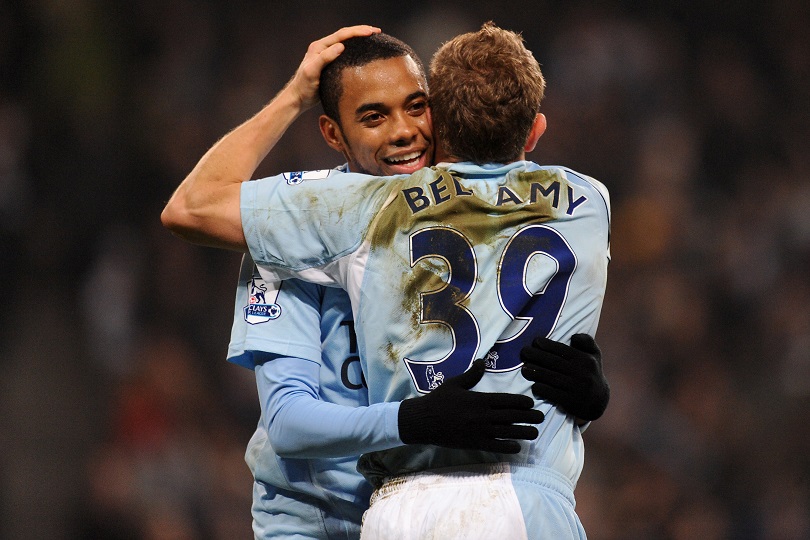
It was reported that you used to get the bus around Manchester – would you agree the city has the best bus system in the world?
Jamie Henderson, via Twitter
Probably. It was indeed very easy to go from one place to another by bus and train. As I’m a footballer, people sometimes find it weird, but I have always been very humble and I didn’t have any problem using public transport. I had used it all my life before I became a footballer, so why wouldn’t I use it in a city that had welcomed me so warmly? I would use my car to drive to training, though. I didn’t want to risk being late and upsetting the manager!
What really happened when Man City accused you of going AWOL when you went back to Rio de Janeiro during their training camp in Tenerife? How angry was Mark Hughes at the time?
Alan Brown, via Facebook
The truth is that [Hughes] didn’t honour his word to me. When I arrived at City, I hadn’t had any vacation time and he promised me he’d give me one week to get some rest. I believed what he told me. So when we travelled to Tenerife, I went to him and said, ‘Mister, can I have my vacation now?’ He said, ‘OK’. I packed my things, let the club know that I was leaving and enjoyed a week back home, because he had allowed me to go – he had given me his word.
Did you feel like winning Serie A in your first season in Italy with Milan proved a point to any of the doubters back in England?
Francesco Tarolli, via Facebook
When I moved to Milan, the main aim was to win Serie A and the Champions League. Unfortunately, we didn’t lift the Champions League, but we did manage to reign in Italy once again. We had a great side, with Thiago Silva, Clarence Seedorf, Zlatan Ibrahimovic, Filippo Inzaghi and Alexandre Pato.
I don’t think I had much to prove to Man City or anyone in England. I had played well during my time there, but I just didn’t play there as long I wanted – there were some issues. If you want to become a bigger club, then you need more than one or two star names – you need a strong group and substitutes. At Milan, I was surrounded by great players; it wasn’t the same at City.Ibrahimovic, Pato and Robinho was arguably Milan’s last great forward line: how fun was it to play in?
Stuart Watford, via Facebook
I had a lot of fun with them. We also had Ronaldinho, who didn’t play a lot then, as well as [Filippo] Inzaghi and [Andrea] Pirlo. What a great side we had, I still miss those days. We found the chemistry on the field very quickly. I had four wonderful years in Milan, won the Serie A title and was happy.
What’s your best Zlatan story?
Jeff Ball, via Facebook
Actually, Milan’s former president Adriano Galliani told me that it was Zlatan who recommended they sign me. He had respect from the board, having just signed there from Barça, which was when Galliani told him there was the chance of also getting me, too. According to Galliani, Zlatan then said, “Go and bring him, he’s a phenomenon, we’re going to work well together and score the goals the team needs.” He used to joke with me, saying, “You are here today because of me.”
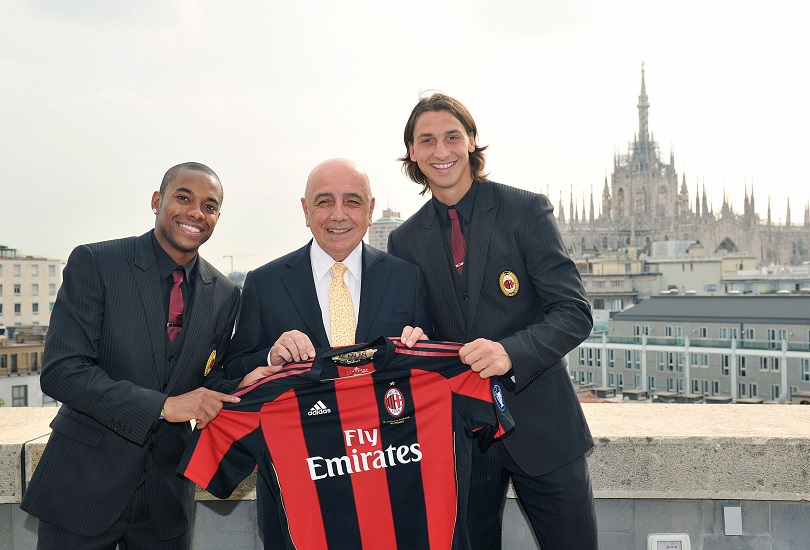
You spent a few months playing for Guangzhou Evergrande – what is the appetite for football like in China? Can you see it becoming the biggest league in the world in the future?
Daniel Beagan, Cheltenham
Football is growing fast in China – the foreign managers working there are doing a lot to help develop the game and raise the level of coaching. I had a great experience at Guangzhou and could see them improving. A few years ago it would be very unlikely for a top player to accept an offer from a Chinese club, but now they can challenge even the biggest sides in Europe. There’s so much money being spent by the clubs that you don't even think twice if you have a chance to move over there.
What’s the music like in China?
Rich Esteves, via Facebook
Damn, they were very cool at my club; I put samba songs on in the dressing room and they all used to listen to them and enjoy them. But dancing... er, I don’t think so.
You have played in La Liga, the Premier League and Serie A – so which league was the best and why?
Dean Manley, via Twitter
The best and most organised league is the Premier League. The stadiums are always full to capacity, the pitches are always good and the teams are always trying to attack. However, I think the one I enjoyed playing in most was La Liga. I’d say the league in Spain is like a better version of the league in Brazil, in terms of pitches and organisation.
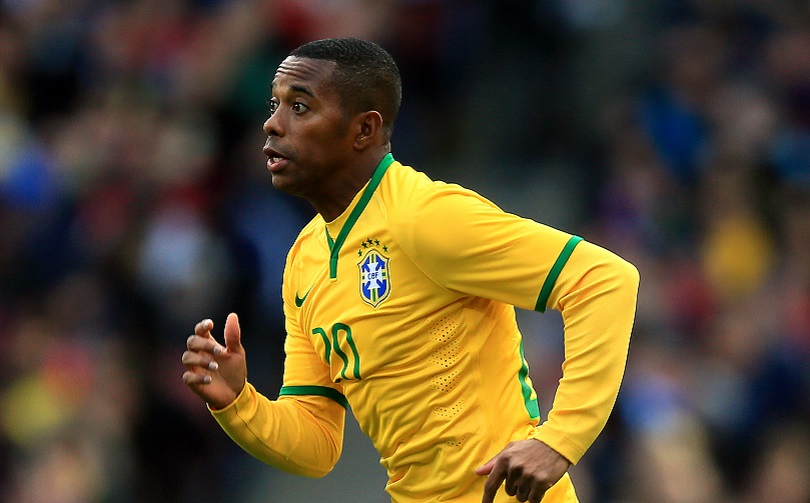
Was Copa America 2007 your best moment with the national team? What was it that went so right at that tournament in Venezuela?
Samuel Mitchell, via Twitter
No doubt, at least individually speaking, because I was top scorer and finished as a champion – there’s nothing much more to say. But I think that when you get on the pitch, you want to help your colleagues, and you can do that in many different ways. Back in my time, the four big names that we had in the frontline were all on a very high level: Ronaldinho, Kaka, Ronaldo and Adriano. There’s no need to make any comment on them.
In 2007, I was the protagonist, top scorer and champion, but I also helped out in other competitions we won – the Confederations Cup in 2005 and again in 2009.
Do you think that your old mate Neymar will be able to surpass Lionel Messi, as well as Cristiano Ronaldo, to become the best player in the world?
Marcos A, via Twitter
Our relationship is great, we get along really well. As a fellow Brazilian, I always hope he can achieve more day after day. He’s the one among us that has the most potential to be the best in the world – he carries the No.10 of the national team and also plays for Barcelona. But we all know that it is not easy to beat Messi and Cristiano Ronaldo – they’re both at such a high level, scoring 60-70 goals per season.
What will you do when you retire? Will you become a coach one day? And if you could do any other job in the world, what would it be?
George Richards, via Facebook
I don’t think about that much. Maybe I’ll become an agent, or will work with young footballers in academies. I want to help footballers the same way that I was helped early in my career. Away from football, I’d like to be a musician, especially a samba one – I like to play the pandeiro and cavaquinho.
This feature originally appeared in the March 2017 issue of FourFourTwo. Subscribe!
Marcus Alves is a freelance journalist based in Lisbon and has written for FourFourTwo since 2012. He can also be found at BBC Sport, the Telegraph, Kicker and Yahoo. A former ESPN reporter, he covered 12 games in 15 days during the 2014 World Cup in Brazil, but can barely remember any of them. He blames cachaça for that.
 Join The Club
Join The Club





